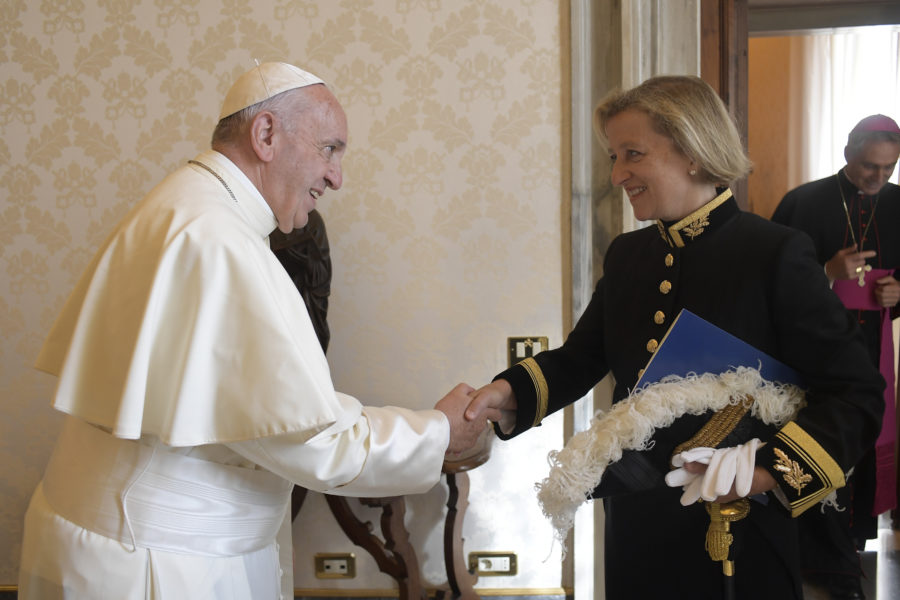29th November 2016 Holy See
How the Vatican does Foreign Policy

One of the things that I have been struck by since starting in Rome in August is the difference in how the Vatican does foreign policy compared to the UK (or indeed most countries).
In some ways our foreign policy structures are similar. In the Vatican the Pope decides the policy line; in London, ministers do. The Holy See has ambassadors (nuncios) and a headquarters policy machine (the Second Section of the Secretariat of State).The Vatican follows, and has views on, all the conflicts of the world. It is represented in the UN, OSCE and other international organisations.
The focus of Vatican foreign policy is however different to our own. The FCO, like most countries’ foreign services, focuses on its national objectives (in our case protecting our people, protecting our global influence and promoting our prosperity). The Pope’s focus is pastoral – on the lives of the nearly 1.3 billion Catholics living throughout the world. Vatican thinking is long-term and focused on the common good. The Holy See tries to remain neutral on political or temporal questions. But, as the Pope told the Jesuits recently, sometimes ‘prophetic audacity’ (which I think means speaking with truth and sincerity) joins with diplomacy, for example in fighting political corruption. So the Pope does speak out on issues that we would consider political, such as climate change or migration.
Policy implementation is also different. The FCO, in addition to providing policy advice, translates ministers’ decisions into actions – whether ambassadors’ lobbying, communications campaigns, proposals for UN Security Council resolutions, international conferences, contributions to peacekeeping missions, or funding projects. The 47 officials working in the Vatican’s Second Section are primarily a repository of expertise and advice. Most Vatican policy implementation is through the words of the Pope. He aims to sway global opinion and change people’s behaviour – and can communicate directly with his more than 27 million Twitter followers.
Sometimes the Vatican does undertake direct policy implementation. The Holy See supported the re-establishment of full diplomatic relations between the US and Cuba, and has supported the peace process in Colombia. It has appointed an envoy to assist negotiations in Venezuela. It gets involved when it is in a unique position to give a push to an issue that needs resolving.
Usually however the bishops’ conferences (which bring together all the bishops of a particular country or area) are responsible for implementation of the Pope’s direction. Nor is the traffic one-way. The bishops suggest issues that the Pope should speak about, or request mediation. So do visiting leaders of religious orders, or individuals from countries suffering conflict.
The result is a foreign policy that is rooted in the concerns of the bishops, and thus of Catholics worldwide. Pope Francis speaks often about the suffering of the people of Syria, but he also speaks about conflicts or instability which the international media tends to overlook – as in South Sudan, the Central African Republic and Burundi. He speaks often with a lively sense of the suffering of the people concerned – often because he has heard about it first-hand.
The Vatican approach does present challenges. But, in a world sometimes mired in the details, it is refreshing to find a body whose eyes are firmly on the stratosphere and which is trying to act in all our interests.
Think about it, people. The world should have already been a better place… without all these freemason/Luciferians.
Very interesting and mind-opening. Great post.
Not only has Pope Francis heard firsthand, he has visited many countries and spoken to suffering people face to face.